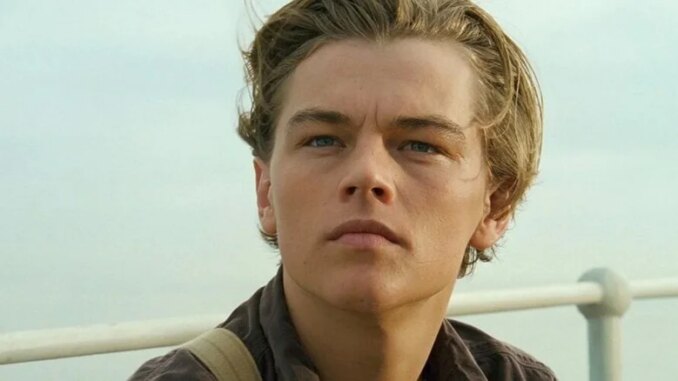
The Weight of What Could Have Been: Ethan Hawke, DiCaprio, and the Ghosts of "Titanic"
Ethan Hawke, the perpetually introspective and often enigmatic actor, has built a career on playing characters wrestling with doubt, longing, and the messy realities of human connection. He embodies a kind of understated intensity, a quiet storm brewing beneath a seemingly effortless exterior. And yet, behind the carefully cultivated persona, there lies, perhaps, the ghost of what could have been – a role, lost to another, that would have irrevocably altered his trajectory: the iconic Jack Dawson in James Cameron's "Titanic."
Hawke has never dwelled obsessively on the near miss. Publicly, he's gracious, almost dismissive, about the casting decision that saw Leonardo DiCaprio, then a rising star, catapulted into the stratosphere of global superstardom. He understands the capricious nature of the industry, the delicate dance of timing and charisma that dictates who gets the golden ticket. But one can imagine, beneath the layers of professional detachment, a flicker of curiosity, a silent acknowledgement of the "what ifs" that inevitably cling to such pivotal moments.
The role of Jack Dawson, the charming, penniless artist who steals Rose's heart on the ill-fated voyage, was tailor-made for a certain kind of romantic vulnerability. DiCaprio brought a youthful, almost ethereal quality to the part, a sense of untarnished idealism that resonated deeply with audiences worldwide. His portrayal of Jack was that of a dreamer, a rebel, a beacon of hope amidst the stifling confines of societal expectations.
But imagine Hawke in the same role. He wouldn't have brought the same untamed innocence. Hawke, even in his younger years, possessed a more grounded, almost cynical energy. His Jack would have been a bit rougher around the edges, a little more aware of the harsh realities of life, a little less naive in his pursuit of happiness. He would have retained the romanticism, the passion, but with a darker undercurrent, a hint of the melancholy that has become a hallmark of his performances.
The dynamic between Jack and Rose, as portrayed by DiCaprio and Kate Winslet, was one of pure, unadulterated romance. It was a fairy tale against the backdrop of tragedy, a love story for the ages. With Hawke in the role, the connection might have been more complex, more fraught with unspoken anxieties. Their romance might have been fueled by a deeper understanding of each other's flaws, a more mature appreciation for the fleeting nature of love and life.
The impact of "Titanic" on DiCaprio's career is undeniable. It cemented his status as a leading man, opened doors to collaborations with renowned directors like Martin Scorsese and Quentin Tarantino, and allowed him to explore a diverse range of complex and challenging roles. Would Hawke have followed a similar path? Perhaps. He certainly possesses the talent and the ambition. But "Titanic" offered DiCaprio a unique platform, a level of visibility and cultural impact that is rarely replicated.
It's important to acknowledge that Hawke's career has been far from unsuccessful. He has carved out a niche for himself, playing characters that are intellectually stimulating, emotionally resonant, and often morally ambiguous. He has received critical acclaim for his performances in films like "Training Day," "Before Sunrise," and "Boyhood," and he has established himself as a respected writer and director.
But the specter of "Titanic" lingers, not as a symbol of regret, but as a reminder of the delicate balance of fate and opportunity in the world of acting. It serves as a testament to the power of a single role to alter the course of a career, and a poignant illustration of the fact that even the most talented and accomplished actors are subject to the whims of chance.
Ultimately, the story of Hawke and "Titanic" is not a tale of failure or missed potential. It is a testament to the resilience of the human spirit, the ability to adapt, to persevere, and to find fulfillment in unexpected places. It is a reminder that success is not defined by a single role, but by the sum total of one's experiences, both the triumphs and the setbacks. And perhaps, in the quiet moments of reflection, Ethan Hawke acknowledges the ghost of Jack Dawson, not with envy or longing, but with a knowing smile, a silent acknowledgement of the road not taken, and a profound appreciation for the journey that has been uniquely his own.
